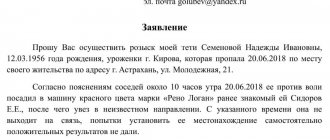Kidnapping is a socially dangerous offense, liability for which is established by Article 126 of the Criminal Code of the Russian Federation.
This type of crime covers several objects, creates a threat to human life and health, and involves the commission of only a specifically established set of actions to initiate a case. In addition, when a person is kidnapped, the Criminal Code of the Russian Federation establishes a number of additional qualifying features that aggravate the situation. Multi-channel free hotline Legal advice on criminal law. Every day from 9.00 to 21.00
Moscow and region: +7 (495) 662-44-36
St. Petersburg: +7 (812) 449-43-40
What is kidnapping?
The article of the criminal law defines the abduction as the actions of the attacker, which are aimed at restricting the freedom of the victim. It should be understood that kidnapping (Article 126 of the Criminal Code of the Russian Federation) is carried out exclusively through the commission of a combination of various criminal manipulations. This atrocity in question differs from other types of similar acts.
The main feature of such a crime is forcing the person who has become the victim to follow the criminal.
In addition to the fact that there was no expression of the victim’s will to leave with the criminal, it should also be understood that the methods of such retention may be different.
Russian and foreign legislation suggests several options for implementing such a crime:
- a secret attempt to steal a person, regardless of what actions should be committed with him next (murder, violence, trafficking, forced labor, staging, like in a movie, etc.);
- a planned attempt to kidnap a person by complicity, conspiracy and group formation (which constitutes an aggravating factor for qualification);
- demonstration of actions on the part of the kidnapper, i.e. open implementation of the crime;
- misleading a person, allowing the victim to be stolen without attracting attention.
The goal will not play a role in this case: whether the criminal wants money, or is it a desire for revenge, or attempts to have fun, as shown in films, and so on.
The resolution of the Plenum of the Armed Forces of the Russian Federation, as well as the history of the development of the nature of the encroachment in question, also reflects the insignificance of motives and goals, only if we are not talking about qualified personnel established by Art. 126 part 2 of the Criminal Code of the Russian Federation. The objective side of the crime must be actually executed in order to be able to send a statement and accept the report of the act as a basis for initiating a criminal case.
It should also be noted that the disposition of the article does not provide any explanations on how to determine the signs of a crime, how this option will differ from others, or whether the act will have a material or formal composition. In such a case, in order to correctly qualify the actions of an attacker, you should refer to the comments of the article of the criminal law in question.
Regarding the establishment of sanctions for attempting to kidnap a person, it should be remembered that only the Criminal Code of the Russian Federation provides for liability for this type of offense. The Code of Administrative Offenses of the Russian Federation does not provide for coercive measures in such a situation; accordingly, all the actions under consideration are defined as crimes and entail a preliminary investigation, trial, punishment and other legal consequences.
https://youtu.be/kISfc_na3Bk
Responsibility
Based on qualifying criteria, the court determines the degree of guilt of the participants and imposes a proportionate punishment.
Punitive measures
According to paragraphs of Article 126, the court may sentence the accused:
- Kidnapping without qualifying criteria - forced labor for up to 5 years or a prison sentence for a similar period.
- Committed by prior conspiracy, with the use of violence, against pregnant women, as well as two or more persons - up to 12 years old.
- By an organized group or causing grievous harm and death of the victim - up to 15 years.
Which category does it belong to?
Part 1 of Article 126 falls under the classification of a serious crime, parts 2 and 3 are considered especially serious.
Legal practice
Let's look at a few examples.
The criminal with two accomplices comes to the victim’s home, where, together with his accomplices, he captures the victim, pushes him into the trunk of a car and takes him to the nearest forest. Here, the attackers hold the victim, demanding that they hand over a flash drive with important information. When the condition was met, the victim was released.
The case was considered by the military court of the North Caucasus Military District, where the main accused, a certain K, was serving under a contract. The court found K guilty of kidnapping as part of a group of persons by prior conspiracy, imposing a sentence of 5 years in prison.
Later, at the request of the defense, the punishment was reduced to 3.9 years in prison, taking into account mitigating circumstances.
Objective signs
Criminal liability arises only when an appropriate basis for this is established. This is recognized as a corpus delicti, which will necessarily include both objective and subjective signs of a criminal offense, indicated directly in the article of the special part of the Criminal Code of the Russian Federation and comments to them.
To apply coercive measures to a person and bring him to justice, the presence of four elements is required. The absence of one of them will make it impossible to initiate a criminal case.
The first group of elements for establishing the composition is objective in nature. This category determines how the crime manifests itself and what it encroaches on. Therefore, we should consider the objective side - the manifestation of crime in the external environment and the object. The latter includes human freedom, which is limited by the attacker, and in some cases, an additional object such as honor, dignity, health and life of the victim is highlighted.
The objective side is characterized by active actions that have three variants of expression:
- Seizure. This means directly committing actions that make it possible to kidnap a person, be it secret or open events. The point is that a person is forced to leave his usual environment, most often his place of residence. All this is done through coercion, threats, pressure and other methods of intimidation.
- Moving. This action will be expressed in the transportation of the person to the place of detention. You can use any means of transportation (car, motorcycle, watercraft, etc.). In this case, the moment of movement must be real. If they try to hide a person somewhere, illegally detaining a person, then this will not be kidnapping, but rather deprivation of liberty. In addition, it should be remembered that any movement is considered as an abduction, for example, a person was taken to another locality, country, republic and held there. The qualification in question will also apply here.
- Hold. It involves placing a person in an unusual environment and preventing any movement of the person, excluding the possibility of leaving the place of confinement. The characteristics of such actions may vary. It is possible to force a person to stay in the right place through various “techniques”: intimidation, violence, causing harm to health, etc.
As soon as the above actions begin to be implemented, the crime will be considered completed, and this, in turn, will mean that the type of crime in question is formal and does not require the occurrence of negative consequences to initiate proceedings in the case.
Bibliography
- Kornakova S.V. Logical foundations of criminal procedural evidence. Irkutsk: Publishing house BGUEP, 2009
- Pinkevich T.V. The subjective side of crime: A textbook. - Stavropol. SFMOSU, 2007
- Dvorkin A.I., Samoilov Yu.M., Isaenko V.N., Rizaev A.Sh. Investigation of kidnapping / A.I. Dvorkin, Yu.M. Samoilov, V.N. Isaenko, A.Sh. Rizaev. M. 2013
- Shkhagapsoev Z.L. Some issues of criminalistic characteristics of kidnapping in the North Caucasus region / Z.L. Shkhagapsoev // Society and law. 2012. No. 1
- Ivanov D.L. Study of the problem of kidnapping / D.L. Ivanov // Psychopedagogy in law enforcement agencies. 2014. No. 3
- Kadnikov N.G. (ed.) Criminal law of Russia. General and Special parts. M: Bukva, 2014
Subjective signs
The second category of elements that are necessarily used when establishing the basis for initiating a case is subjective in nature. Here attention is paid to who commits the crime, what characteristics the person has and why this is committed, i.e. the subjective side of the issue is assessed - guilt.
The subject of the crime in question is defined as general, but with a decrease in age indicators.
In order for a person to act as a suspect in a kidnapping case, the person must meet the following characteristics:
- the age of the accused must be at least fourteen years old, since due to the increased severity of the act, this criterion has been reduced from sixteen years to the minimum limit;
- sanity, which requires the offender to be fully aware of what is being done and what the resulting consequences may be.
According to criminal law, a legal entity can never be the subject of a crime.
The subjective side, characterized by guilt, that is, a person’s mental and psychological attitude to the assault, involves a division into types:
- Intent. Here the person will look at events with full awareness of what is happening, anticipation of negative consequences and the desire for them to occur. Moreover, the criminal, with intent, strives to achieve the completion of the act, which will involve causing harm to certain social relations.
- Carelessness. Here the person also controls his own actions, but either does not foresee or does not prevent the possible consequences of the attack, although due to the circumstances he should have done so.
Abduction is carried out only with direct intent, that is, for the specific purpose of detaining a person and limiting his freedom.
Separately, it should be said about the optional signs of the subjective side of such an offense. These include motives and goals.
As a general rule, to establish the composition in question, the determination of such criteria is not necessary, however, statistics and judicial practice show that the majority of kidnappings were committed for mercenary motives, that is, there was always a desire to obtain money, property, even tax breaks, the abolition of obligations to pay debts (pressure on authorized person: inspector, bailiff), etc.
The subjective side of kidnapping is expressed only in direct intent, when the perpetrator realizes that he is kidnapping a person, acting against his will, and desires it.
Direct intent is characterized by the main goal - kidnapping a person, sufficient to recognize the presence of the elements of this crime, and the ultimate goal - the victim performing any actions in which the perpetrator is interested.
The goal characterizes the motive of this crime. Most often it is committed for a specific motive, but there may be other motives: revenge, careerist or hooligan motives, facilitating the commission of another crime, etc.
Analysis of judicial practice shows that when a person is kidnapped, the mercenary motive is predominant, although there are often cases when kidnapping is a way to resolve property conflicts between citizens (return of a previously issued loan, payment for sold property, kidnapping versus kidnapping, etc.) .
Let us give an example from practice when “selfish goals” do not act as a motive for a crime, although at first glance it is self-interest that guides the actions of criminals:
“On February 19, 1997, the Zamoskvoretsky Intermunicipal (District) Court of the Central Administrative District of Moscow convicted Kruzhkov under paragraphs a,” h, part 2 of article 126 of the Criminal Code of the Russian Federation.
He was found guilty of kidnapping, committed by a group of persons by prior conspiracy, for mercenary reasons under the following circumstances.
May 27, 1995 at about 12 o'clock. by prior agreement with two persons not identified by the investigation, Kruzhkov, having entered the premises of JSC "MIK", under the pretext of holding negotiations with the chairman of the board of "Probusiness Bank" Zheleznyak for the purpose of kidnapping Filchenko, fraudulently forced the latter to go with him into the car and then took him to a car box of the Vympel garage and construction cooperative, owned by Bykhovsky as a personal property, but actually used for parking cars of the Probusiness Bank JSCB. In the car along the route, the men who arrived with Kruzhkov threatened Filchenko with violence. Demanding the return of money in the amount of 400 million rubles (transferred through the mediation of Filchenko by Probusiness Bank to the commercial bank Monomakh) and threatening to kill him and his daughter, Kruzhkov began kicking Filchenko in the legs, punched him in the left temporal region of the head, and struck kick to the solar plexus. Then the mentioned persons ordered Filchenko to go down to the basement of the garage, closed it with a wooden hatch, placed a Jeep car on top and left, closing the garage door from the outside with a padlock. As a result of these actions, Kruzhkov Filchenko suffered minor bodily injuries that did not result in health problems. After staying in the basement for more than an hour, Filchenko peeled back the hatch board, climbed out of the basement, then, using improvised means, opened the garage door and left it.
On April 29, 1997, the Judicial Collegium for Criminal Cases of the Moscow City Court left the verdict unchanged.
The Deputy Chairman of the Supreme Court of the Russian Federation in protest raised the question of changing court decisions: excluding Kruzhkov’s conviction under clause 3, part 2 of article 126 of the Criminal Code of the Russian Federation.
On July 17, 1998, the Presidium of the Moscow City Court satisfied the protest, indicating the following.
The court motivated the qualification of Kruzhkov's actions as a kidnapping committed for mercenary motives in the verdict by the fact that the culprit demanded money from Filchenko for other persons heading Probusiness Bank, since he became aware of the non-repayment of the Probusiness Bank loan by Monomakh Bank. bank”, where he, Kruzhkov, worked.
However, this conclusion of the court does not comply with the law.
Under kidnapping committed for mercenary reasons, the law provides for cases where the motive for the kidnapping is the desire of the perpetrator to obtain material benefit from the crime for himself or herself or for other persons.
As can be seen from the case materials, during the abduction of Filchenko, Kruzhkov did not and could not derive any material benefit for himself or other persons, since he demanded that he pay money not to himself personally or to anyone from the bank management, but to return the loan transferred during through the mediation of Filchenko by a legal entity - "Probusiness Bank" under an interbank agreement with the commercial bank "Monomakh".
These circumstances were established by the court and confirmed by the case materials.
As can be seen from the testimony of the victim, he mediated the transfer by Probusiness Bank to Monomakh Bank of a loan in the amount of 400 million rubles at interest. After the theft of the loan, the head of Monomakh Bank disappeared and he, Filchenko, began to call from Probusiness Bank about repaying the loan. He replied that he was ready to assist in his return. At the same time, the victim confirmed that Kruzhkov did not demand the transfer of money for himself personally or for one of the leaders of Probusiness Bank, but only the return of a loan taken from the bank - a legal entity. The fact that neither Kruzhkov nor the individuals of Probusiness Bank had the goal of obtaining any material benefit is evidenced by the testimony of Zheleznyak, Tokmakov, and Shagarov.
So, according to witness Zheleznyak, Filchenko and Fadeev came to him as the chairman of the board of Probusiness Bank with a request to give a loan in the amount of 400 million rubles for three months. After the payment of interest on the loan stopped, the loan itself was not repaid, and Fadeev disappeared, Filchenko called him, Zheleznyak, and promised that the loan would be repaid, but this did not happen. The conversation that the loan had not been repaid could have been heard by Kruzhkov, who worked in the security service of Probusiness Bank.
Witnesses Shagarov and Tokmakov confirmed the fact of non-payment of the loan and explained that Kruzhkov, demanding repayment of the loan to the bank, had neither personal nor official interest.
As Kruzhkov explained during the investigation and in court, he accidentally learned about the non-repayment by Monomakh Bank of a loan taken from Probusiness Bank, where he worked, and decided to show himself on the positive side by providing assistance in its return.
Under such circumstances, it should be recognized that Kruzhkov acted, albeit illegally, in the interests of a legal entity - a bank, which had every right to demand repayment of the loan. Individuals of the bank did not have any material benefits.
Since the creditor’s demands for the borrower to return unjustifiably withheld amounts cannot be considered selfish, Kruzhkov’s actions in the interests of the bank cannot be considered committed for selfish reasons.
Thus, Kruzhkov’s finding guilty of kidnapping a person for mercenary motives is unfounded, therefore this qualifying element of this crime must be excluded from the sentence.
Kruzhkov’s actions should be qualified under clause “a”, part 2 of article 126 of the Criminal Code of the Russian Federation as the kidnapping of a person by prior conspiracy by a group of persons”[1].
As the researchers emphasize, “kidnapping with this kind of motive is not yet large, accounting for approximately 5-7% of the total mass of all motives. At the same time... it would be wrong to underestimate the peculiarity of this motivation for kidnapping, since it indicates an insufficiently effective regulation of conflicts arising between citizens by civil and civil procedural legislation.”
The subject of “kidnapping” is a person who has reached the age of sixteen. However, according to the majority of researchers (A.V. Naumov, D.A. Sitnikov), the subject of this crime cannot be: one of the parents (adoptive parent) of a minor when he is abducted from another parent or from any other place where he is located legal basis; a parent deprived of parental rights; a close relative (brother, sister, grandfather, grandmother), provided that all these persons acted, in their opinion, in the interests of the minor, and not in the interests of third parties who are not related by blood to the minor and who are not his adoptive parents.
Two special criteria can be identified for the subject of a crime, which exclude the possibility of bringing him to criminal responsibility for kidnapping. The first, objective, includes the presence of family or legal ties with the abducted person, which makes it possible to identify a specific person as a close relative. The second is a subjective criterion, characterized by the absence of various base motives on the part of the perpetrator (demanding a ransom, exerting physical or mental pressure on a minor, receiving benefits, etc.).
Characterizing the subjects of the crime under consideration and highlighting their main features (demographic, age), experts note:
a) among the persons who committed this crime, males predominate, while a significant proportion of persons brought to criminal liability under Article 126 of the Criminal Code of the Russian Federation are persons under the age of 25 to 32 years. This trend may indicate that one of the ways to fulfill the material needs of young people has become active participation in committing illegal actions, including kidnapping;
b) it is also noteworthy that among the criminals of this category no persons under 16 years of age were identified;
c) among this category of citizens, a significant percentage are persons who have dependent minor children;
d) a significant proportion of persons who committed kidnapping are persons who arrived from neighboring countries. Left in their homeland without a means of subsistence due to mass unemployment and the poor state of the national economy, they were forced to look for work on the territory of the Russian Federation. But the scale of this phenomenon put them in the position of cheap, and often completely free, labor. In view of this, they were forced to engage in kidnapping as a criminal trade, which became the main or additional, but very significant source of income;
e) this category of persons is characterized by a relatively low educational level;
f) the dominant motive was insufficient material security and self-interest;
g) a significant proportion of persons at the time of the kidnapping had a criminal record or had previously committed another crime;
h) the majority of persons convicted of kidnapping were unemployed at the time of the crime;
i) the majority of crimes are committed by a group of persons by prior conspiracy or by an organized group. At the same time, the spread in age and nationality is quite large.
[1] Resolution of the Presidium of the Moscow City Court dated July 17, 1998 “The court’s incorrect assessment of the motive for committing a kidnapping led to a change in the sentence” (Extract) // Bulletin of the Supreme Court of the Russian Federation. - 1999 - No. 5. — p.19.
Judicial practice under Article 126 of the Criminal Code of the Russian Federation
Resolution of the ECHR dated January 26,
2017 58. On September 9, 2014, 1 investigative body opened criminal case No. 815447 on the fact of the abduction of the applicant on the basis of paragraph “a” of part two of Article 126 of the Criminal Code of the Russian Federation (abduction by a group of persons by prior conspiracy).
Resolution of the Presidium of the Supreme Court of the Russian Federation dated February 28, 2018 N 280P17
By the verdict of the Tver Regional Court dated September 14, 2005, Badalov was convicted of a set of crimes provided for in paragraphs “a”, “c” of Part 2 of Art. 163, paragraph “a”, part 3, art. 126, paragraph “a”, part 3, art. 163, paragraphs “a”, “c”, part 2 of Art. 161 of the Criminal Code of the Russian Federation, in accordance with Part 3 of Art. of the Criminal Code of the Russian Federation to 13 years of imprisonment in a maximum security correctional colony.
Appeal ruling of the Judicial Collegium for Criminal Cases of the Supreme Court of the Russian Federation dated 06/07/2018 N 10-APU18-1
- clause “a”, part 2, art. 126 of the Criminal Code of the Russian Federation to 8 years in prison; - clause “c”, part 2, art. 105 of the Criminal Code of the Russian Federation to 15 years of imprisonment with restriction of freedom for 1 year; on the basis of Part 3 of Art. of the Criminal Code of the Russian Federation for the totality of crimes by partial addition of punishments, finally to 18 years of imprisonment in a maximum security correctional colony with restriction of freedom for 1 year with the restrictions and responsibilities listed in the verdict.
Appeal ruling of the Judicial Collegium for Criminal Cases of the Supreme Court of the Russian Federation dated May 23, 2018 N 41-APU18-6
- according to paragraph “a” of Part 2 of Art. 126 of the Criminal Code of the Russian Federation for 6 years, - under paragraphs “c”, “g”, part 2 of Art. 105 of the Criminal Code of the Russian Federation for 14 years with restriction of freedom for 1 year 6 months,
Appeal ruling of the Judicial Collegium for Criminal Cases of the Supreme Court of the Russian Federation dated May 16, 2018 N 5-APU17-108SP
- convicted under paragraphs “a”, “c” of Part 3 of Art. 126 of the Criminal Code of the Russian Federation for 10 years in prison - under paragraph “a” of Part 3 of Art. 126 of the Criminal Code of the Russian Federation for 9 years of imprisonment - Part 4 of Art. 159 of the Criminal Code of the Russian Federation (as amended by Federal Law No. 26-FZ of March 7, 2011) (in relation to P.) for 8 years in prison,
Resolution of the Presidium of the Supreme Court of the Russian Federation dated 06.06.2018 N 71P18
Convicted: under paragraph “k” of Part 2 of Art. 105 of the Criminal Code of the Russian Federation to 14 years in prison, under paragraphs “a”, “z”, part 2 of Art. 126 of the Criminal Code of the Russian Federation to 7 years in prison, under paragraph “a” of Part 2 of Art. 158 of the Criminal Code of the Russian Federation to 3 years 6 months of imprisonment, under Part 1 of Art. , part 3 art. 162 of the Criminal Code of the Russian Federation to 6 years in prison, under paragraphs “a”, “c”, “d”, part 2 of Art. 163 of the Criminal Code of the Russian Federation to 5 years in prison, under Part 2 of Art. 222 of the Criminal Code of the Russian Federation to 2 years in prison, on the basis of Part 3 of Art. of the Criminal Code of the Russian Federation to 16 years of imprisonment in a maximum security correctional colony.
Appeal ruling of the Judicial Collegium for Criminal Cases of the Supreme Court of the Russian Federation dated June 27, 2018 N 56-APU18-7
according to clause “e”, part 2, art. 126 of the Criminal Code of the Russian Federation - for a period of 9 years, under paragraph “c” of Part 2 of Art. 105 of the Criminal Code of the Russian Federation - for a period of 19 years, on the basis of Part 3 of Art. The Criminal Code of the Russian Federation for the totality of crimes, by partial addition of punishments, finally imposed 22 years of imprisonment to be served in a high-security correctional colony.
Determination of the Judicial Collegium for Criminal Cases of the Supreme Court of the Russian Federation dated June 28, 2018 N 56-UD18-19
pp. “c”, “d” part 2 art. 126 of the Criminal Code of the Russian Federation to 8 years for kidnapping Ya. November 28, 2005, part 1 of Art. 105 of the Criminal Code of the Russian Federation to 10 years for the murder of Ya. November 29, 2005,
Appeal ruling of the Judicial Collegium for Criminal Cases of the Supreme Court of the Russian Federation dated July 25, 2018 N 77-APU18-5
according to paragraphs “c”, “d”, part 2 of Art. 126 of the Criminal Code of the Russian Federation for 5 (five) years with restriction of freedom for a period of 1 year; according to paragraph “c” of Part 2 of Art. 105 of the Criminal Code of the Russian Federation for 9 (nine) years with restriction of freedom for a period of 1 year 6 months;
Appeal ruling of the Judicial Collegium for Criminal Cases of the Supreme Court of the Russian Federation dated July 25, 2018 N 47-APU18-6SP
- according to clauses “a”, “z”, part 2 of Art. 126 of the Criminal Code of the Russian Federation (as amended by Federal Law No. 420-FZ of December 7, 2011) to five years in prison; - according to clauses “a”, “c”, part 2 of Art. 163 of the Criminal Code of the Russian Federation (as amended by Federal Law No. 26-FZ of 03/07/2011) to three years and six months of imprisonment. Based on clause 3, part 1, art. 24 Code of Criminal Procedure of the Russian Federation Tokmachev A.A. released from punishment imposed under clauses “a”, “c”, part 2 of Art. 163 of the Criminal Code of the Russian Federation due to the expiration of the statute of limitations for criminal prosecution;
Appeal ruling of the Judicial Collegium for Criminal Cases of the Supreme Court of the Russian Federation dated October 3, 2018 N 4-APU18-35
according to clause “a”, part 3, art. 126 of the Criminal Code of the Russian Federation for 10 years; according to paragraphs “a”, “b”, part 3 of Art. 163 of the Criminal Code of the Russian Federation for 12 years with a fine of 400,000 rubles to the state;







